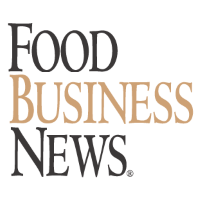
Top Strategist Greg Fleishman on Developing a Strong Brand Identity and The Keys to a Successful Product Launch
From time to time, I will be interviewing industry experts when I feel that their knowledge and insight can be of great value to Organic Insider readers. In the first of this series, I am speaking with Greg Fleishman (with his daughter Ellegra above), Co-Founder & CEO of Purely Righteous Brands.
In my view, Greg is the absolute best and most sought-after brand building consultant in the organic food industry today, through his work in strategy, marketing, design and channel management. See his full bio below.
Greg talks about what it takes to successfully launch a product and how brands fail to develop a strong identity.
When launching a new product, what are the few key things that you do and think about? Also, what are the biggest mistakes that companies make?
The most critical element is a fully developed launch sales & marketing plan, which I often think of as “Mother henning every point of distribution.” This means having a plan that focuses on driving immediate, scalable awareness against target consumers that surround all points of distribution.
For example, if I get a product into Whole Foods in Brooklyn, I am thinking about how to drive awareness from two specific vantage points:
1) In-Store: demos, partnering with other complementary brands, accessing Whole Foods’ promotional offerings such as its newsletter or end-cap programs, and a compelling/trial-driving price discount (typically no less than 50% off your regular everyday SRP).
2) Out-of-Store: leveraging digital marketing and geo-targeting advertising on platforms such as Facebook, Instagram, Amazon and Google Display; experiential–connecting with consumers in the field and sampling with them, close to where you have nearby points of distribution.
You now have 6 months on average to prove out new products, so leaning on impactful, scalable and highly targeted tactics is key to driving rapid trial. All of this needs to be guided by clear objectives, goals and strategic pillars.
In terms of the biggest mistakes that brands make when launching a new product, I would say they are two.
The first mistake is around planning — either not far enough in advance of the launch or blasting off without a high impact, integrated, 360-degree marketing program. This is critical to driving immediate awareness and trial.
Most people launch a brand and only rely on trade promotion. They don’t think holistically, which is a huge error.
The other mistake is that sales, marketing, and operations must be partnering and working together. While this may sound obvious, the reality is that all too often these departments are still operating in silos. Everyone needs to be in constant communication, from the planning stage to execution.
The product launch does not end once the product hits the shelf. A successful product launch requires 6-9 months before it hits stores and then another 6-9 months afterward to iron out the kinks and to drive awareness and trial. Throughout both phases, the operations, sales and marketing teams must be working in complete lock-step.
Many brands fail to have a strong identity. Why is that?
Generally speaking, there is a breakdown somewhere in developing a brand’s identity.
Some people do not know they need to formally develop a brand’s identity, so there is an education gap. The brand makes sense to them. Yet, they do not realize it doesn’t make sense to other people.
If people have identified there is an issue with the brand’s identity, they may not understand the process necessary to fix this problem.
Or, if they have gone through the process, they may not know how to express this via all consumer touch points – packaging, website, advertising, trade show booths, promotional activities, even something as simple as a t-shirt.
There are approximately 22,000 new items launched every year in the food and beverage industry, and it is becoming brutally competitive. The congestion of new products means that a consumer must immediately know what you stand for.
However, when you walk through the store, you see quite a few brands that don’t know what they stand for and how they are supposed to change your life for the better. You should be able to look at a product and within seconds, understand its value proposition.
One brand that has nailed it is Go Raw. They have a brand identifier of “junk-free food”. Right away from the packaging, I know that it is a snack brand and I also know that it is an alternative to unhealthy food.
Other best practice brand identifiers are: Foodstirs is a “modern baking company”, REBBL is “righteous plant alchemy”, Modern Alkeme is “Japanese supertonics” and Bonafide Provisions is “restorative bone broth”.
It is not a coincidence that really strong brands have clear and concise brand identifiers on their packaging.
When developing a brand’s messaging, what are the most important things to remember?
An effective message brief focuses on: who you are trying to reach; what their core needs are; your unique promise and values (that no other competitor in the category could not lay claim to) and where/when you are delivering the messaging.
When it comes to message delivery itself, it’s key that it be breakthrough and on brand, and that it utilizes ownable message points and is persuasive.
—
Greg Fleishman is currently the Co-Founder & CEO of Purely Righteous Brands. During his 20-year career, he has created, positioned, and grown some of the world’s largest and most successful brands, launching 1,500+ items across 17 food and beverage categories into 12 countries, focusing primarily on the “natural green space”.
He held the role of Chief Marketing Officer at both Suja Juice and Sambazon, and previously worked in marketing, strategy, and innovation at Kashi, Bear Naked, Kellogg, and Coca-Cola. Greg is also the Co-Founder & COO at Foodstirs and Co-Founder & CSO at Modern Alkeme, two super-hot brands in the industry.
In 2016, Greg was named to Forbes List of Top Consumer Catalysts, and he currently serves on the Board of Directors or Advisory Board for Demeter Biodynamic, Nuun, Temple Beverage Co., Tasty Brand, Love the Wild, Modern Alkeme, and Foodstirs.
 |
Have a great day! 
Max Goldberg, Founder |
Quick Hits
* Signed by 334 certified organic beef, pork, dairy, and poultry producers representing approximately $2 billion in annual organic sales, a letter was sent on Friday to USDA Secretary Sonny Perdue urging him to allow the Organic Livestock and Poultry Production rule to become effective on May 19 without further delay.
* This Friday and Saturday in New York City, the Organic Trade Association is hosting the first-of-its-kind pop-up event called Live ORGANIC: From Farm to Home.
* Top organic clothing and lifestyle brands will be flying in from all over the country to present, with the ultimate goal of increasing awareness of the importance of organic fibers and textiles. If you’d like to see what is taking place at the pop-up, I’ll be at the media event from 6-8pm EST on Thursday and will be doing a Facebook Live from there.
* The Center for Food Safety has been very busy lately. It has taken legal action against the EPA to protect the bees and the environment from pesticide-coated seeds.
* Additionally, it has just launched the Global Seed Network, which is being referred to as the Match.com of seed saving.
* Legendary organic restaurateur Nora Pouillon of Restaurant Nora in Washington, D.C. just received the lifetime achievement award from The James Beard Foundation.
Weekly News Summaries


IMPORTANT: Is Your Organic Milk Truly 'Organic'?
By Peter Whoriskey
The Washington Post has done a massive investigation into Aurora Organic Dairy skirting the organic rules and certain organic certifiers not doing their jobs. Let's hope this article sounds the alarm and that we get much greater enforcement at the USDA of organic rules. Consumers and small, family farmers deserve better.

How the Industry is Working to Meet the Strong Demand for Organic Grains
By Jeff Gelski
Suppliers of organic grains have been very strategic and aggressive about planning for the surge in demand for organic grains. However, supply issues could be restraining growth from being even higher.

'Organic Food Against Climate Change' Challenge in the EU
In Holland, Wessanen and Impact Hub have launched an 'Organic Food Against Climate Change' challenge with 11 sustainable food entrepreneurs.
Facing an Oversupply of Organic Milk
By Megan Durisin
It wasn't long ago when there were serious concerns about shortages of organic milk. Now, there is an opposite worry, where demand is much less than supply.

Study: GMOs Won't Feed the World, Educating Women Will
By Joe Fassler
Despite what we've been told by Big Ag, GMOs will not feed the world. A new study shows that empowering women and girls is the key to feeding the world's population.

Massive Consumer Backlash Against GMOs in China
By Dominique Patton
In favorable news, consumers in China are choosing to avoid GMO-soy oil, the main cooking oil in the country, because of safety concerns. This is a very big development and will create real problems for the government, who is pushing GMOs.

National Academies of Science Acknowledges Conflicts of Interest with GMOs
By Tim Schwab
In a very positive turn of events, the National Academies of Science has acknowledged serious conflicts of interest in regards to its GMO studies and vows to reform.


Whole Foods Names its Suppliers of the Year for 2017
Out of the thousands of suppliers who sell to Whole Foods, the company has selected the best ones in 16 different categories.

Traditional Medicinals Secures Investment from Builders Fund
By Chris Witkowsky
Traditional Medicinals, a producer of organic herbal teas, has sold a minority stake to Builders Fund, the first non-friends/family investor in the company's 40-year history.

Organic Farmers Association appoints Kate Mendenhall as its New Leader
The Organic Farmers Association has just named Kate Mendenhall, former Executive Director of NOFA-NY, as the leader of this very important farmer-based advocacy organization.
The material in this newsletter is copyrighted and may be reprinted by permission only. All requests must be in writing. Please use our contact form to request republication rights.
Newsletter Archive
Quick Hits
* Signed by 334 certified organic beef, pork, dairy, and poultry producers representing approximately $2 billion in annual organic sales, a letter was sent on Friday to USDA Secretary Sonny Perdue urging him to allow the Organic Livestock and Poultry Production rule to become effective on May 19 without further delay.
* This Friday and Saturday in New York City, the Organic Trade Association is hosting the first-of-its-kind pop-up event called Live ORGANIC: From Farm to Home.
* Top organic clothing and lifestyle brands will be flying in from all over the country to present, with the ultimate goal of increasing awareness of the importance of organic fibers and textiles. If you’d like to see what is taking place at the pop-up, I’ll be at the media event from 6-8pm EST on Thursday and will be doing a Facebook Live from there.
* The Center for Food Safety has been very busy lately. It has taken legal action against the EPA to protect the bees and the environment from pesticide-coated seeds.
* Additionally, it has just launched the Global Seed Network, which is being referred to as the Match.com of seed saving.
* Legendary organic restaurateur Nora Pouillon of Restaurant Nora in Washington, D.C. just received the lifetime achievement award from The James Beard Foundation.
